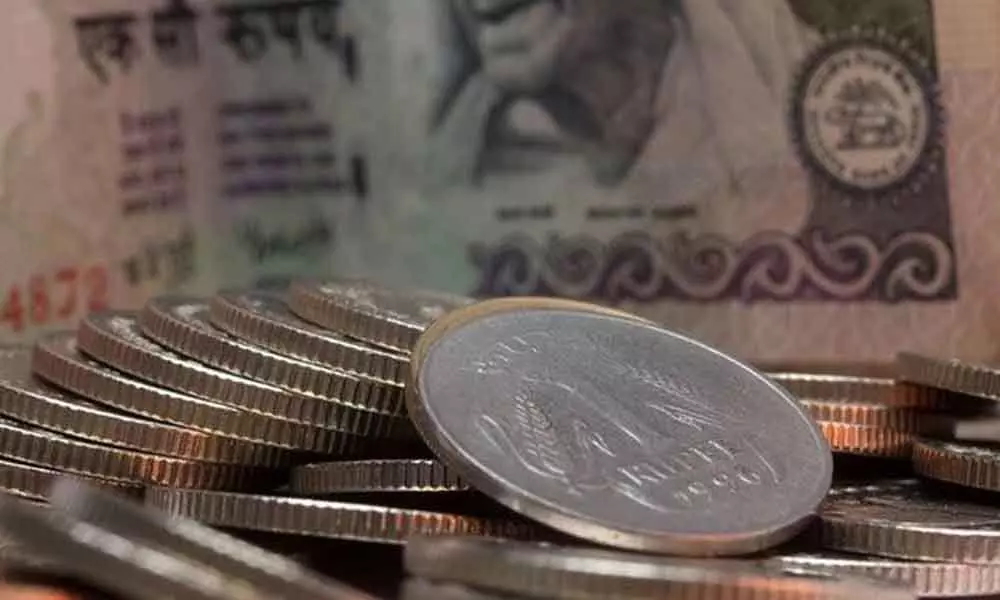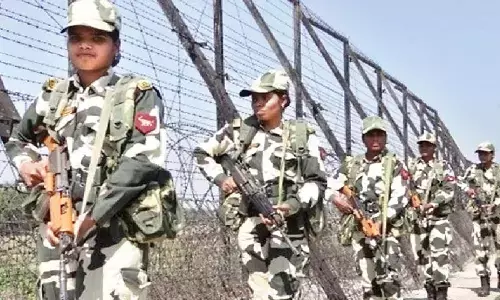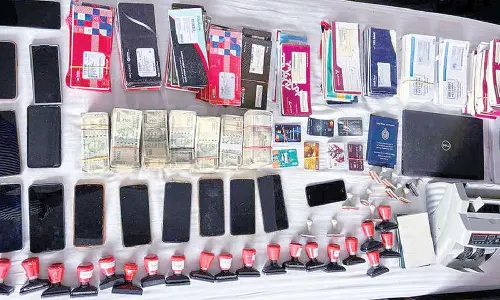Indian rupee plunges on crude oil woes

Down 68 paise to `71.60 against $ amid concerns over soaring crude prices
Mumbai: Logging its first fall in eight sessions, the Indian rupee on Monday plunged by 68 paise to 71.60 against the $ amid concerns over soaring crude prices following drone attacks on Saudi Arabia's oil facilities.
Surging crude oil prices have emerged as major fears for India -- the world's third largest oil importer -- in form of fiscal slippage and inflationary pressure.
The drone attacks on Saturday targeted Abqaiq, the site of the largest oil processing plant run by the Saudi state oil company, Aramco, and the Khurais oilfield.
At the interbank foreign exchange market, the local unit opened lower at 71.54, then fell to a low of 71.63 during the day.
The rupee finally closed at 71.60, down 68 paise over its previous close.
The Indian currency had settled at 70.92 against the $ on Friday. Crude oil benchmark, Brent Futures, surged by almost 20 per cent to $71.95 per barrel (intra-day) on Monday after twin drone attacks on Saturday wiped out more than half of Saudi Arabia's crude supply.
It was also the biggest gain in Brent in dollar terms since futures started trading in 1988. However, Brent Futures saw some moderation and was trading at $66.63 per barrel, still up 10.59 per cent over the previous close.
Meanwhile, the $ index, which gauges the greenback's strength against a basket of six currencies, rose 0.13 per cent to 98.38.
"The INR and other emerging currencies that rely on huge Crude imports have been spooked by this turn of events as the ripple effects on currency are two-fold: 1) an increase in imported inflation i.e. rising CPI and 2) a hit on the trade deficit," said Rajesh Cheruvu, Chief Investment Officer, Validus Wealth.
Finance Minister Nirmala Sitharaman on Saturday unveiled over Rs 70,000 crore of measures for exporters and the real estate sector, including about Rs 30,000 crore new spending in plans such as setting up of a stressed asset fund, as part of efforts to boost economic growth from a six-year low.
"Nirmala Sitharaman announced new measures for boosting economy on Saturday but positive impact on rupee was negated by the negative development of spike in brent crude prices," HDFC Securities Head PCG and Capital Markets Strategy V K Sharma said.
Besides, heavy selling in domestic equity market and sustained foreign fund outflows also weighed on the domestic currency, forex traders said. The 30-share BSE Sensex ended 261.68 points, or 0.70 per cent, lower at 37,123.31. The broader NSE Nifty too settled 79.80 points, or 0.72 per cent, down at 10,996.10.
Foreign institutional investors (FIIs), who were net buyers for the past few sessions, offloaded shares worth Rs 751.26 crore on Monday, according to provisional exchange data. The 10-year government bond yield was at 6.72 per cent on Monday.
The Financial Benchmark India Private Ltd (FBIL) set the reference rate for the rupee/$ at 70.9387 and for rupee/euro at 78.5646. The reference rate for rupee/British pound was fixed at 87.6547 and for rupee/100 Japanese yen at 65.64.









